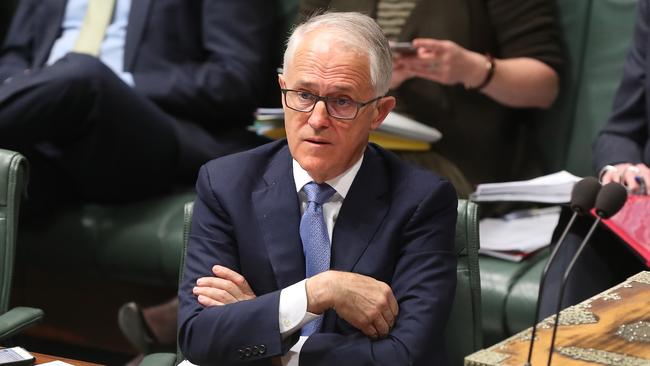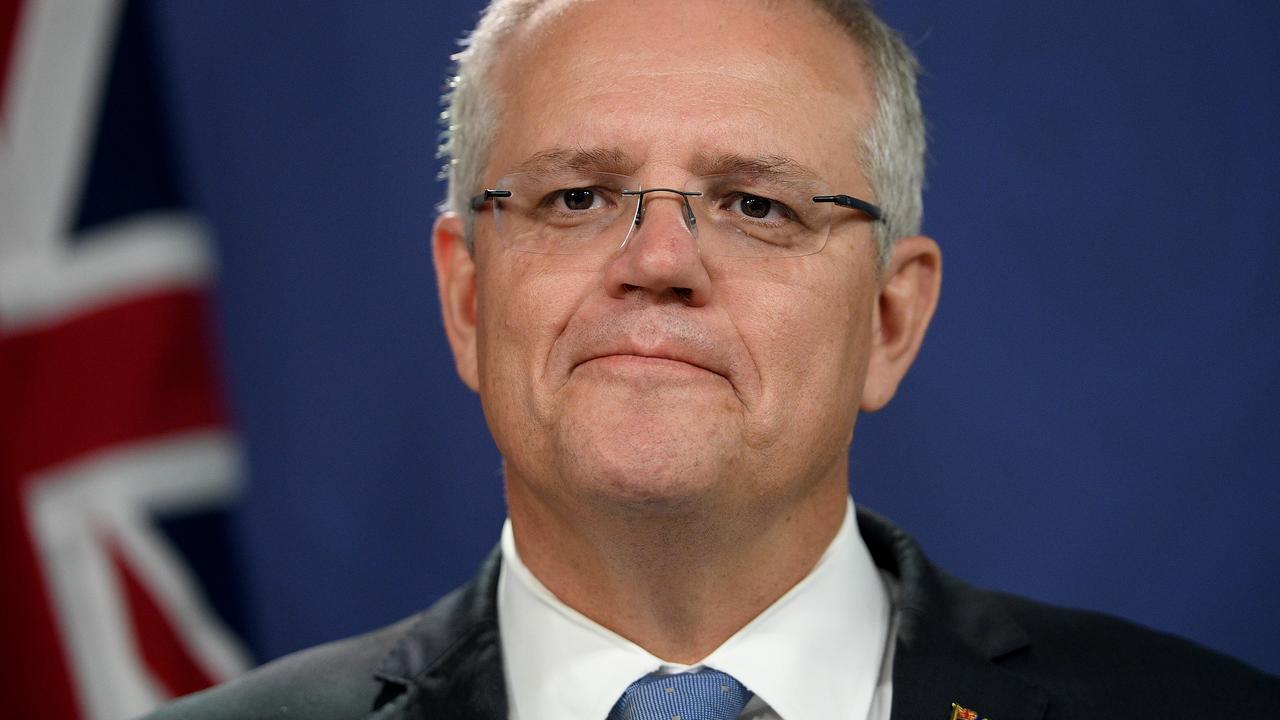
The internal Coalition conflict over the national energy guarantee is developing dangerous leadership overtones as frontbenchers are pressured to resign and Malcolm Turnbull appears to have given up trying to convince rebel MPs not to vote against the pivotal legislation.
The Prime Minister’s authority and credibility will be seriously challenged if any senior MPs resign to allow them to vote against the energy bill and force him to rely on Bill Shorten’s support in the House of Representatives.
An eleventh-hour appeal to some rebellious MPs to change their minds appears to have been a forlorn hope as Turnbull prepares to introduce the energy legislation today in an effort to put pressure on federal Labor to make a decision.
Some Coalition MPs who are threatening to cross the floor have taken Turnbull’s decision as a sign he is not prepared to change the legislation to accommodate their concerns and is conceding he will have to rely on Labor to pass the federal legislation and convince the states to agree.
The political dangers to Turnbull are obvious: a resignation or resignations will destabilise his ministry and could spark a debilitating chain reaction, as was the case in 2009 over his support for Kevin Rudd’s emissions trading scheme, and having to rely on Labor to pass the legislation will further alienate the Coalition’s conservative membership. Instead of being able to capitalise on the chance to force the Opposition Leader to make a decision on whether to oppose the lower emissions target and efforts to provide “lower electricity prices”, Turnbull is going to have to link with Labor in the house and Senate and be at Shorten’s mercy.
While Labor should deliver the bipartisan support for the new energy reliability plan it has promised, Shorten and the Labor states can delay and divert the debate until before Christmas, maximising the political damage to Turnbull from divisions within the Coalition.
The challenge for Turnbull, apart from trying to win back rebel MPs, is to head off any resignations from the ministry that would provide impetus to campaign against the legislation and potentially damage his leadership.
Last night, senior ministers were nominating Queensland LNP MP and Assistant Trade Minister Keith Pitt as likely to resign, but played down the importance of the resignation of a “loose cannon”.
Whether he’s a loose cannon or “crazy”, Pitt’s resignation would add to the momentum of forces within the Coalition against the proposed energy plan, where at least 10 MPs have reserved their right to cross the floor and vote against the government.
Other frontbenchers were under intense pressure to demonstrate their conservative credentials by resigning and joining the rebel forces against legislating and mandating the UN Paris carbon emissions-reduction target of 26 per cent by 2030.
While the issue remains focused on the principle of mandating a target that was unenforceable, there is a danger that any resignations will trigger a graver crisis for the government as Turnbull’s authority further erodes.





To join the conversation, please log in. Don't have an account? Register
Join the conversation, you are commenting as Logout